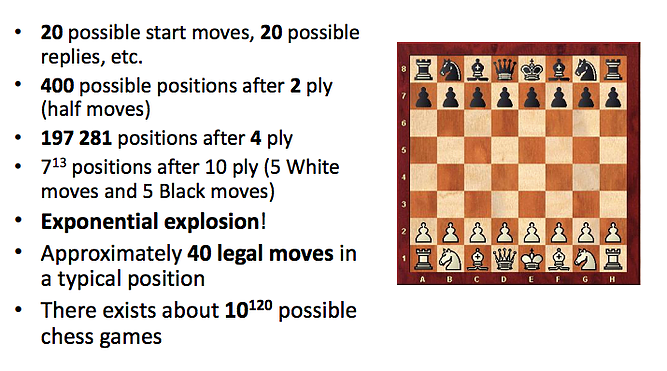J_B_
I have answers to questions no one ever asks.
- May 15, 2020
- 1,344
- 388
- Country
- United States
- Gender
- Male
- Faith
- Christian
- Marital Status
- Private
There is no ambiguity about it.
Learning to play chess goes beyond knowing how the pieces move and the rules of chess.
This was the part programmed into AlphaZero; the tactical and strategic side of chess was self taught by AlphaZero.
This is how AI operates by machine learning.
You have not addressed my point. I didn't say computers are incapable of beating chess masters. It's happened, so obviously it's a thing. It's also a thing (though not a surprising one), that people are getting better at making chess-playing programs.
Brute force cut and try, superimposed on a computer by human will through code, with no demonstration of understanding, no matter how elegant one might think the algorithm by which this occurs, is not teaching or learning in the sense in which the word is used in a human context. It's an appropriation and redefinition of the word.
Maybe you only mean those terms in an AI context and never meant to conflate them with their use in a human context, but the very tone of the OP says otherwise. Why do I think that? Because I am not aware of a rigorous AI definition of those terms used within the field. In everything I've read on AI, it's only ever used in a loosely illustrative sense.
That the issue of AI "morality" has now leaked into the conversation is evidence of such. For these people to set themselves up as the gods of AI who will keep these autonomous beings in check and guarantee their morality is laughable. Duh. It was never in question that people are responsible for the consequences of their inventions. It didn't need to be said. I suppose it's comforting in some way for them to acknowledge their responsibility, but it didn't need to be said. The law already holds them responsible whether they acknowledge it or not.
Racism is already a hate crime in much of the world, whether physicists acknowledge that or not. As I said, it's nice that some of them do, but it's no more special than some guy who makes tin cans acknowledging it - maybe less so.
Last edited:
Upvote
0


